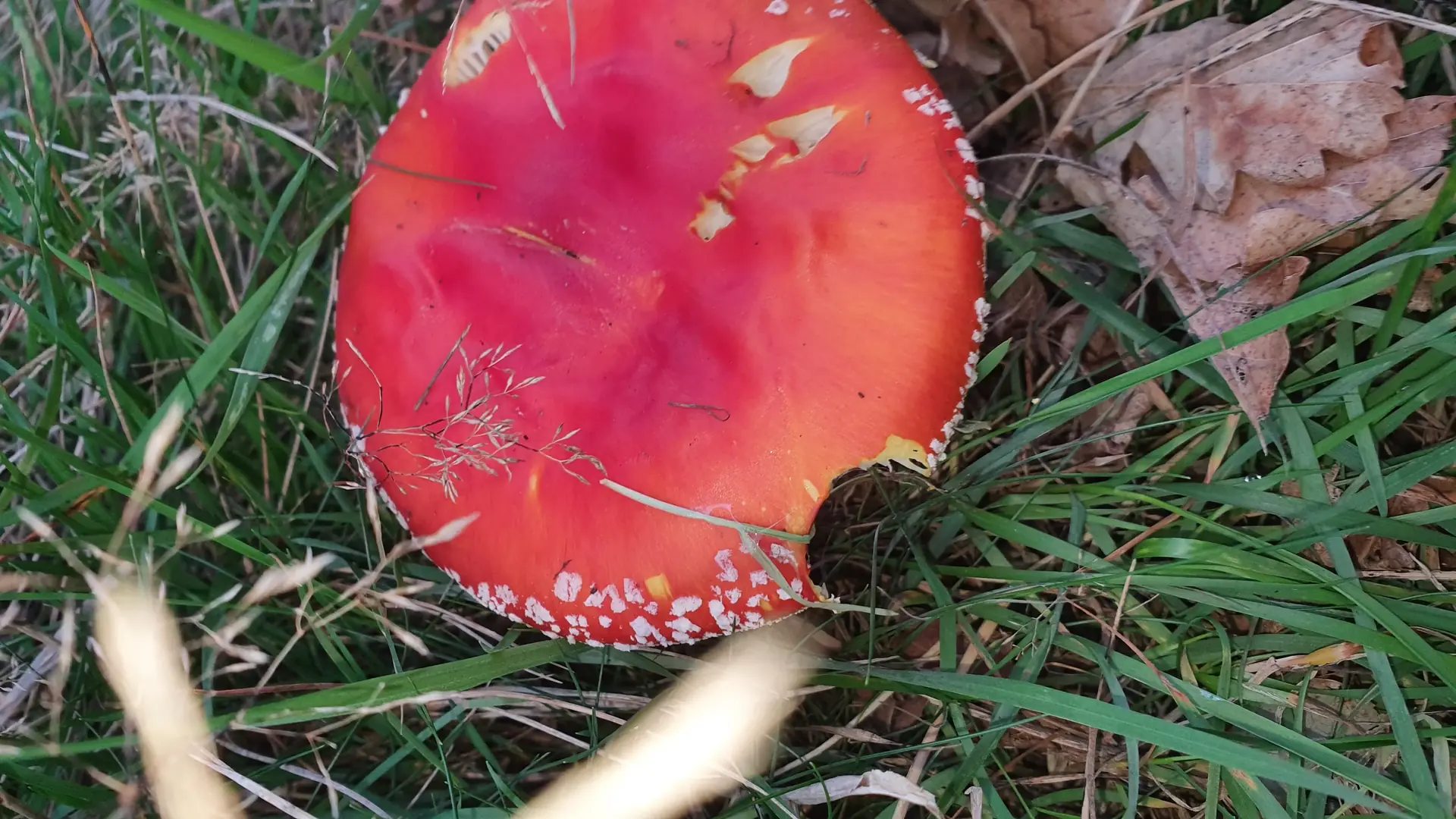Fly Agaric
Amanita muscaria
Identification: Amanita muscaria (Fly Agaric). Contains neurotoxins.

1 / 2
Alle Bilder (2)
Hauptmerkmale
- Bright red to orange cap
- White
- patchy remnants (warts) on cap surface
- White
- crowded
- free gills
- Robust
- pale yellow stem with annulus remnant
- Growing in soil
- likely mycorrhizal
Farbe:
Bright red cap; white gills and stem
Geruch:
No distinctive smell
Wuchsform:
Single
Umgebung:
Soil
Lebensraum & Verbreitung
Lebensraum:
Forest edge or grassland, associated with conifers or hardwoods
Verbreitung:
Widespread across Northern Hemisphere (Europe, Asia, North America)
Saisonalität:
Late Summer to Autumn
Zur sicheren Bestimmung
- Stem base (volva) is missing, preventing full assessment of basal structure, critical for Amanita identification.
Wirtschaftlicher Wert
Marktnachfrage:
None - toxic
Preisspanne:
N/A
Kommerzielle Nutzung:
None
Informationen zur Giftigkeit
Symptome:
- Nausea and vomiting
- Confusion and delirium
- Muscle spasms
- Dizziness
Eintrittszeit:
30 minutes to 3 hours
Erste Hilfe:
- Seek immediate medical attention
- Contact poison control center
Notfallkontakte:
- 911 (US)
- 112 (EU/EEA)
- Poison Help (US): 1-800-222-1222
Ähnliche Arten
Panther Cap
Amanita pantherina
Hauptunterschiede:
- Cap is brown to dark brown, not red
- Warts are typically smaller and whiter
The Sickener
Russula emetica
Hauptunterschiede:
- Lacks a ring or volva
- Stem is brittle and snaps easily
- Gills are attached (adnate)
Empfohlene Handlung
Do not consume. Handle minimally. Secure specimen for disposal. Wash hands immediately.